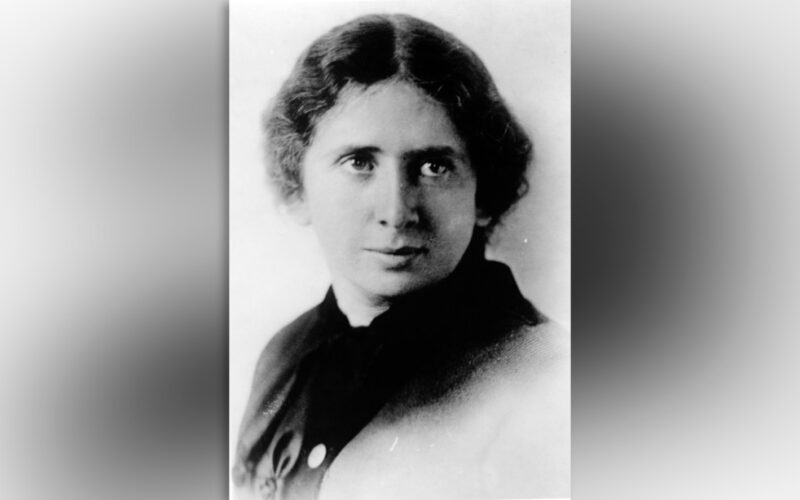Labor day in America is a necessary observance of the ongoing struggle for workers’ rights. While some know about the pivotal role of Jewish immigrant women in that history, many don’t. They were the backbone of our labor movement, paving the way for protections we enjoy today.
This school year, New York City students can learn about one of them, Rose Schneiderman through “Hidden Voices: Jewish Americans,” a new curricular resource by the NYC DOE, championed by Jewish Community Relations Council of New York (JCRC-NY). The resource is the first-of-its kind among the largest school districts in the nation.
In a time of rising antisemitism, lifting up the contributions of these fearless young Jewish women — who fought for the rights of all workers — provides a broader, richer understanding of Jewish identity that will help prevent hate before it takes root. Here’s how their fight for workers’ rights began more than a century ago.
In the late 19th and early 20th centuries, waves of Jewish immigrants fled antisemitic violence and economic ruin in Eastern Europe in search of a better life in America. With no homeland to return to, these immigrants understood that their future depended on their ability to live and work here with dignity, as is the case for so many immigrants today. For many Jewish women arriving in New York, that future was forged in garment factories on the Lower East Side, stitching the fabric of America’s growing economy.
Many of these young women worked 14-hour days for meager wages in dangerous conditions. In response to these injustices, they organized. Clara Lemlich, a Jewish immigrant and International Ladies Garment Workers Union leader, spearheaded the 1909 “Uprising of the 20,000,” one of the largest women-led strikes in U.S. history.
Two years later, the Triangle Shirtwaist Factory fire killed 146 mostly Jewish and Italian immigrant girls and women trapped behind locked doors. Factory owners were acquitted, protected by a system prioritizing profits over workers’ lives. The tragedy, however, set off a wave of pro-labor reforms thanks to the bravery and determination of Jewish immigrant women.
Rose Schneiderman, a fiery Jewish immigrant organizer for the New York Women’s Trade Union League, and Frances Perkins, a social worker and lobbyist who witnessed the fire, joined forces on the state’s newly formed Factory Investigating Commission. Alongside Lemlich and other unionists, they won sweeping reforms for the state: fire safety regulations, protections for women and children, and restructuring the state Department of Labor to enforce new laws that became a blueprint for the nation.
Building on New York’s successes, Schneiderman worked to advance federal labor laws. As the only woman on FDR’s National Labor Advisory Board, she fought to include domestic workers in the Social Security Act and crafted labor codes for female-dominated industries. Perkins, the nation’s first female secretary of labor, famously called the Triangle fire “the day the New Deal began.”
These gains were forged on picket lines and in union halls through the relentless courage of Jewish immigrant women who understood long ago the value of intersectionality in driving social and political progress. The legacy of Lemlich, Schneiderman, Pauline Newman, and many more lives on in every modern fight for equal opportunity.
We see it in fights for equitable school funding and smaller class sizes. We see it in the successful SAG-AFTRA strike led by Fran Drescher — a Jewish New Yorker from Queens. We see it in the fearless leadership of Dr. Linda Mills, the first Jewish and first female president of NYU, the university where students are now educated in the Triangle Shirtwaist Factory building that once stole the futures of so many young women.
From classrooms to studios, factories to offices, and farms to retail shops, the fight for workers’ rights that began in Lower East Side garment factories, carried through state capitols and the White House, continues today.
We must stand with labor and uphold basic principles underlying a movement that began long ago: no worker’s life is expendable, no matter their race, religion, or immigration status. Foundational labor rights were not handed down from benevolent employers or a corrupt legal system. They were won by Jewish immigrants with nothing but an unshakable determination to make America more just for working people.
Today we are writing a new chapter about Jewish leaders who will inspire generations to come. And that is a lesson worth teaching: in classrooms, and every Labor Day to come.
Treyger, a former councilman and public school educator, is the CEO of the JCRC-NY. Rozic represents the 25th Assembly District in Eastern Queens.








